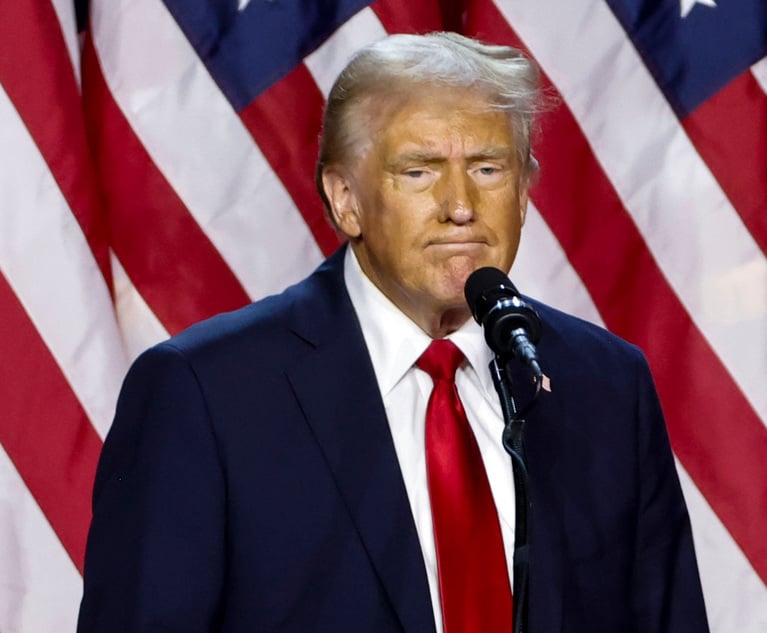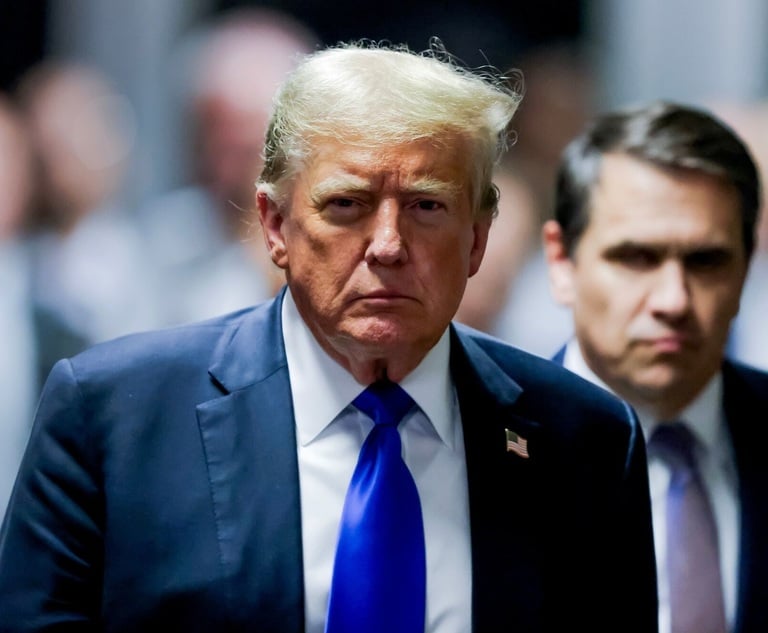Being Selective: How Companies May Best Protect Privilege When Cooperating With a Government Investigation
This article explores a key consideration for companies under government investigation: whether voluntary disclosure of privileged information in an effort to obtain cooperation credit waives the privilege vis-à-vis third parties in subsequent litigation.
December 21, 2021 at 02:53 PM
12 minute read
In the past few months, the U.S. Department of Justice (DOJ) has placed a renewed emphasis on corporate accountability. Particularly, it has announced exacting new disclosure requirements for companies to receive cooperation credit in any government investigation. While the DOJ does not require the disclosure of privileged materials for cooperation credit, and will not explicitly ask for a waiver, there is often a tension as to where companies may draw the line.
This article explores a key consideration for companies under government investigation: whether voluntary disclosure of privileged information in an effort to obtain cooperation credit waives the privilege vis-à-vis third parties in subsequent litigation. Given the prevalence of follow-on civil litigation for certain types of investigations, the ability to preserve the privilege under the "selective waiver doctrine" may be of critical importance. This article analyzes various views on the selective waiver doctrine by federal courts in different jurisdictions and offers best practices for cooperating with the government in a manner that best protects the privilege.
|DOJ's Increased Emphasis on Corporate Enforcement and Heightened Standards for Cooperation Credit
The DOJ is once again highly focused on pursuing investigations of corporations with an emphasis on individual accountability. Notably, on Oct. 5, 2021, John Carlin, Principal Associate Deputy Attorney General, announced that the DOJ will significantly surge resources for corporate enforcement. Carlin specifically mentioned a new squad of FBI agents that will be designated to work full time within the DOJ's Fraud Section as well as increased enforcement of sanctions and export controls. On Oct. 28, 2021, Deputy Attorney General Lisa Monaco, delivering the keynote address at the ABA annual National Institute on White Collar Crime, stated that the DOJ "will not hesitate to take action when necessary to combat corporate wrongdoing."
This content has been archived. It is available through our partners, LexisNexis® and Bloomberg Law.
To view this content, please continue to their sites.
Not a Lexis Subscriber?
Subscribe Now
Not a Bloomberg Law Subscriber?
Subscribe Now
NOT FOR REPRINT
© 2025 ALM Global, LLC, All Rights Reserved. Request academic re-use from www.copyright.com. All other uses, submit a request to [email protected]. For more information visit Asset & Logo Licensing.
You Might Like
View All
Merchan Rejects Trump's Bid to Delay Manhattan Sentencing

Trump Defense Team Urges Judge to Stay Impending Sentencing

'The Most Viable Solution': Donald Trump to Face Sentencing on January 10, Judge Rules

Defense Counsel for Ex-U.S. Sen. Bob Menendez Urges Sentence of Less Than Two Years
Trending Stories
- 1Decision of the Day: Uber Cannot Be Held Vicariously Liable for Driver's Alleged Negligent Conduct
- 2TikTok Law and TikTok Politics
- 3California Supreme Court Vacates Murder Conviction in Infant Abuse Case
- 4New York’s Proposed Legislation Restraining Transfer of Real Property
- 5Withers Hires Lawyers, Staff From LA Trusts and Estates Boutique
Who Got The Work
Michael G. Bongiorno, Andrew Scott Dulberg and Elizabeth E. Driscoll from Wilmer Cutler Pickering Hale and Dorr have stepped in to represent Symbotic Inc., an A.I.-enabled technology platform that focuses on increasing supply chain efficiency, and other defendants in a pending shareholder derivative lawsuit. The case, filed Oct. 2 in Massachusetts District Court by the Brown Law Firm on behalf of Stephen Austen, accuses certain officers and directors of misleading investors in regard to Symbotic's potential for margin growth by failing to disclose that the company was not equipped to timely deploy its systems or manage expenses through project delays. The case, assigned to U.S. District Judge Nathaniel M. Gorton, is 1:24-cv-12522, Austen v. Cohen et al.
Who Got The Work
Edmund Polubinski and Marie Killmond of Davis Polk & Wardwell have entered appearances for data platform software development company MongoDB and other defendants in a pending shareholder derivative lawsuit. The action, filed Oct. 7 in New York Southern District Court by the Brown Law Firm, accuses the company's directors and/or officers of falsely expressing confidence in the company’s restructuring of its sales incentive plan and downplaying the severity of decreases in its upfront commitments. The case is 1:24-cv-07594, Roy v. Ittycheria et al.
Who Got The Work
Amy O. Bruchs and Kurt F. Ellison of Michael Best & Friedrich have entered appearances for Epic Systems Corp. in a pending employment discrimination lawsuit. The suit was filed Sept. 7 in Wisconsin Western District Court by Levine Eisberner LLC and Siri & Glimstad on behalf of a project manager who claims that he was wrongfully terminated after applying for a religious exemption to the defendant's COVID-19 vaccine mandate. The case, assigned to U.S. Magistrate Judge Anita Marie Boor, is 3:24-cv-00630, Secker, Nathan v. Epic Systems Corporation.
Who Got The Work
David X. Sullivan, Thomas J. Finn and Gregory A. Hall from McCarter & English have entered appearances for Sunrun Installation Services in a pending civil rights lawsuit. The complaint was filed Sept. 4 in Connecticut District Court by attorney Robert M. Berke on behalf of former employee George Edward Steins, who was arrested and charged with employing an unregistered home improvement salesperson. The complaint alleges that had Sunrun informed the Connecticut Department of Consumer Protection that the plaintiff's employment had ended in 2017 and that he no longer held Sunrun's home improvement contractor license, he would not have been hit with charges, which were dismissed in May 2024. The case, assigned to U.S. District Judge Jeffrey A. Meyer, is 3:24-cv-01423, Steins v. Sunrun, Inc. et al.
Who Got The Work
Greenberg Traurig shareholder Joshua L. Raskin has entered an appearance for boohoo.com UK Ltd. in a pending patent infringement lawsuit. The suit, filed Sept. 3 in Texas Eastern District Court by Rozier Hardt McDonough on behalf of Alto Dynamics, asserts five patents related to an online shopping platform. The case, assigned to U.S. District Judge Rodney Gilstrap, is 2:24-cv-00719, Alto Dynamics, LLC v. boohoo.com UK Limited.
Featured Firms
Law Offices of Gary Martin Hays & Associates, P.C.
(470) 294-1674
Law Offices of Mark E. Salomone
(857) 444-6468
Smith & Hassler
(713) 739-1250








